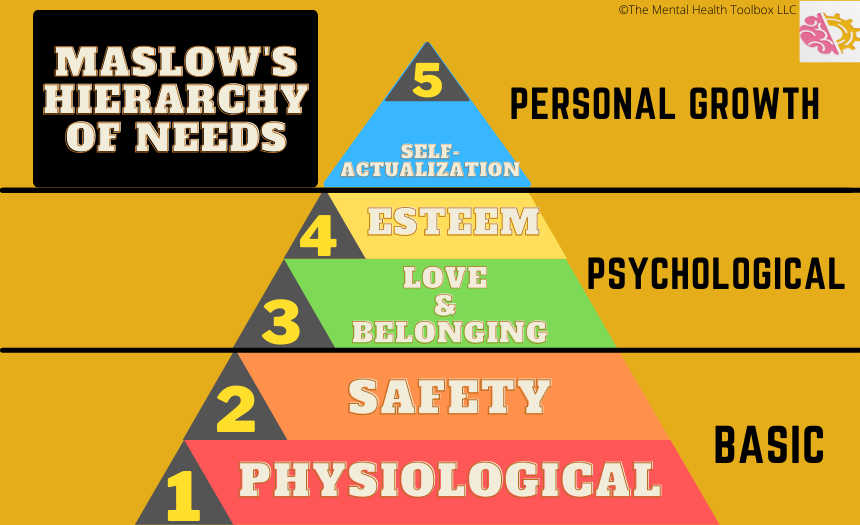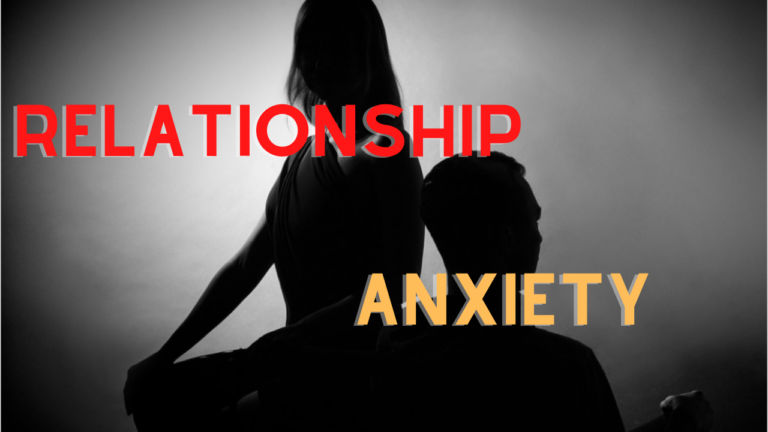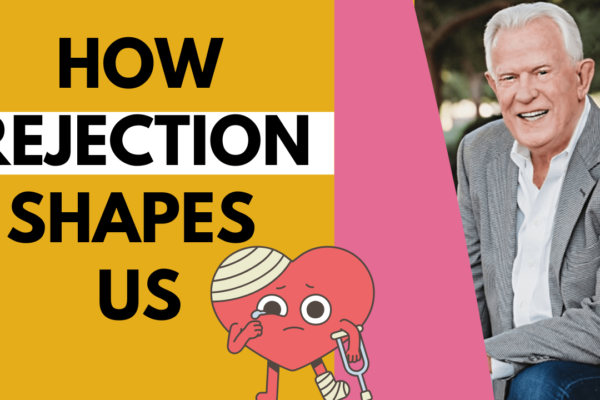Table of Contents
In this post, I discuss why anxiety hurts communication in relationships, and more importantly, what you can do about it.
If you are wondering why anxiety hurts communication in your relationships, then stick around; because in this episode of the Mental Health Toolbox, we are talking about what it looks like, where it comes from, and what you can do about it.
Anxiety has a diminishing impact on relationships with family, friends, and intimate partners, and is not something we want to ignore and just hope will go away or resolve itself. Anxiety is something we need to address proactively.
What it looks like
Secure attachment -vs- avoidant -vs- anxious attachment:
Anxiety hurts communication, because it decreases distress tolerance, causes irrational worry and fear of negative outcomes. We often refer to this automatic negative thought pattern as catastrophizing, where the mind goes straight to the worst case scenario when fears are triggered. It causes irrational worry and fear of negative outcomes and almost to an irrational level.
When talking about Schemas and Attachment: It is key to understand that anxious attachment has specific red flags.
- All or nothing (Love me or leave me) thought patterns.
- Anticipated abandonment and assumption of rejection.
As we’re looking at the anxious attachment style, it’s important to keep in mind the notion of schemas.
As you might recall, a schema is a particular view of the world/society, it is the lens by which we understand the world in relation to ourselves.
And if somebody has a negative schema or skewed schema, such as that the world is rejecting, they might have an anxious attachment style to go with it.
Anxious attachment style often comes with protest behaviors, which are easily triggered by anything reminiscent of negative past lived experiences. They adopt distorted assumptions of how the world operates and this leads to anger as a maladaptive defense mechanism. Is a kind of muscle-memory reaction.
Also, fear of abandonment is a primary factor (a natural -vs- maladaptive response) and can result in a pattern of extreme protest behaviors; these behaviors can manifest with a presentation of complete complacency/compliance or apathy/disengagement.
Reactionary behaviors are common when fears of abandonment are triggered (AKA jumping the gun); also known as defense mechanisms and because they are fear-based, they react before getting the facts.
Regarding communication, it is important to keep in mind both the verbal and non-verbal cues of distress.
Verbal: Self-expression will often stem from fear, which presents as anger, or aggressive communication, sometimes in an attempt to elicit validation or reassurance from a partner.
Non-verbal: Look for signs of containment in their body-language.
When it comes to choices, those with secure attachments will take acceptable risks versus avoidance and social isolation.
Those with an anxious attachment, will fear change or the unknown, because they are afraid to ruin what is working or what is familiar, often due to labile experience growing up.
And remember, when it comes to protest behavior, negative attention is better than being ignored and this belief can fuel the negative feedback loop in the relationship dynamic.
Watch the video:
Where it comes from
Schemas are formed through lived experience, generally from formative years of development, and if one’s upbringing is marked by trauma, or inconsistency, it can result in skewed or polarized thought patterns, such as “all or nothing”, “love me or leave me” mentalities. There is a notion of what is referred to as the “Love Map”, which denotes the belief that one learns the rules around how to give and receive affection between ages 0-6. Around this age, the relationship to one’s primary care giver is formed, and expectations are learned over time, such as how to give and receive affection, and if that validation is something to be earned, pursued, predictable, pursued or an unconditional constant regard. It is worth noting, that subjective perception plays a large role in the formation of schemas, as well as how those schemas are triggered or activated later in adulthood (if something is believed to be real, it is often real in its consequences…self-esteem and context).
So then, skewed or mal-adaptive schemas are believed to be caused or impacted by inconsistency in early development, such as invalidation, mood lability, or introduction of a lesser caregiver (such as a boyfriend), which is allowed into the child’s life, by the primary caregiver. This can result in the child feeling unprotected or valued less by the primary caregiver and can have psychologically damaging effects.
Children often explain abandonment by blaming themselves because they cannot make sense of the context and contributing factors that lead them to their current state (foster care, etc). This is because children are egocentric and dichotomous in their thinking, until about the age of 12 years old.
And so, criticism (excessive or imbalanced) the child receives, can result in lowered confidence and sense of adequacy which further supports formation of negative identities.
Listen to the episode:
Read the slides:
What we can do about it
First, we can acknowledge that we are all hardwired for connection (oxytocin). Social isolation is not the answer. If our loved one is isolating for an unhealthy period of time, we can encourage inclusion and participation, with unconditional positive regard and be consistent in our support efforts, creating corrective experiences that will help to re-shape a healthier schema of the world.
We can learn to re-parent ourselves. If we have a less than an ideal childhood, we can approach life as adult understanding that assumptions formed in our adolescence, are not necessarily the most accurate take on society and that we can experiment with, and test our beliefs. Yes, anxiety hurts communication, but we can learn to communicate more effectively in spite of anxiety, in a way that serves our relationships.
We can do the work on changing our Rules and Assumptions, Schemas, and paradigms using techniques of thought tracking, challenging and replacement (CBT).
When we are preoccupied with survival our personal growth is halted. We must attend to our hierarchy of needs (not put the cart in front of the horse).

We can actively work on changing our thought process: Automatic Negative Thoughts (ANTs), reflected appraisals, rules and assumptions.
When we understand that anxiety is not just a silent suffering, but rather that anxiety hurts communication in all kinds of relationships, we begin to understand the damage it can cause in lost opportunities.
We can focus on the purpose of relationships, such as to encourage one-another, build each other up, and be better together than apart.
Strive for authentic and vulnerable communication: Owning our behaviors so we can seek understanding versus blame. Our past experience does not have to dictate our present. We can moderate our belief systems.
We can learn to identify exceptions to skewed core beliefs, finding objective evidence to self-doubt and reinforce positive thinking.
We can increase our protective factors, such as healthy relationships (corrective relationships/lived experiences).
Practice with Cognitive Processing Worksheets to change our automatic thoughts (mood scales, mood/thought journals, narrative journals).
Understand the function of our behaviors. How they were helpful but are now unhelpful (like a dance, context is everything).
Learn to identify what “the” met need would look like.
Notice what gets lost in translation, misconstrued (eg. confusion with rejection).
Recovery means learning to trust your own capacity to meet your needs versus looking outside of yourself (internal locus of control).
Practice being present with mindfulness exercises (card).
Learning to be more comfortable with taking acceptable risks, accept that making mistakes is a prerequisite to learning and growth.
Well, there you have it, another tool for you to thrive! Now go make good things happen.
Learn More:
(NOTE: The following are affiliate links and I earn a small commission on purchases made through them, at no additional cost to you.)
Love Me, Don’t Leave Me: Overcoming Fear of Abandonment and Building Lasting, Loving Relationships.


Attached: The New Science of Adult Attachment and How It Can Help YouFind – and Keep – Love

The Anxiety and Worry Workbook: The Cognitive Behavioral Solution.

Want to learn more? Check out my top picks for books on self-improvement and recovery HERE!
NEED CRISIS HELP? If you need immediate crisis help with your depression, you can call the National Suicide Prevention Lifeline at 1-800-273-8255 or text “START” to 741-741
OUTSIDE THE UNITED STATES: See International Suicide Hotlines
WHERE TO FIND MENTAL HEALTH HELP:
-NAMI Referral Helpline: 1-800-950-6264
-California’s Statewide Mental Health Helpline: 1-855-845-7415
ASK: If you have a question you’d like me to answer here on the blog (even if you think it’s a silly one!), please use the form on the CONTACT ME page, or the comment section below. I would be happy to take a poke at it and provide a long form answer when appropriate.
SHARE: Also, be sure to share it with a friend, as there is still a lot of work to be done in raising mental health awareness.
SUBSCRIBE to get your FREE MOOD TRACKING TOOL and quick Mental Health Hacks in addition to this newsletter. Sign-up with the form below.
admin
Latest posts by admin (see all)
- Thriving with Autism and ADHD: Expert Strategies for Managing Burnout - April 22, 2024
- Serial Killer Spotlight: Dr. Caparelli’s True Crime Analysis - April 14, 2024
- Donna’s Law: Stop Gun Suicides - March 22, 2024





